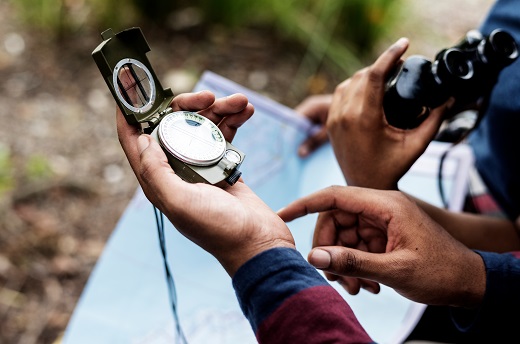How to Open a Bank Account
How to open a bank account, online or in-person
Whether you are opening your first account or you’ve already had bank accounts before, setting up a new account can be painless these days, especially with options to establish an online account.
These steps can help you prepare for opening a bank account:
- Determine your needs – Consider how you will use your account. Do you need to access your funds daily for living expenses? Or a debit card for purchases? Is your primary objective to get cash easily? Write these on a list.
- Identify a financial institution – Compile a few options. Look at bank options with ATMs conveniently located to where you live, work, or go to school. Check to make sure the banks offer the services that are important to you. If you want to open your account online, make sure that is an option.
- Choose an account type – Review the bank’s range of account options which will have varying service levels, fees, and other features. Compare these to your needs. Choose the bank and account that best matches your list of needs.
- Gather what you need – For opening an account online or in-person, you will need to have a way of verifying your identity. The exact requirements may vary among banks and account types, but this is usually a government-issued ID. You’ll also need a Social Security number or taxpayer identification number. You may need funds to make your initial opening deposit.
Now you have that overview, let’s look at some important considerations in detail.
What is a checking or bank account?
A bank account makes taking care of your everyday financial needs easier. You can accept deposits such as a paycheck and make withdrawals. Depending on the account you choose, you may also gain access to helpful services like electronic bill pay, ATM and debit card, and check writing.
What are the benefits of a bank account?
A bank account gives you greater control over your money and simplifies managing your finances. These are some of the reasons why people have accounts.
- Security – Holding large sums of cash is risky because of the chances it can be lost or stolen. A bank account can protect you with services like direct deposit, debit cards, electronic bill pay, and FDIC insurance up to $250,000 per person.
- Economical – A bank account is usually more affordable than check-cashing services and money orders, which have significant fees per transaction.
- Convenience – You can make your life a little easier by accessing ATMs and ATM networks to draw cash, making mobile deposits, using a debit card in stores or for online purchases, and paying bills by check or with online bill pay.
- Transactions – Checking accounts typically allow numerous deposits and withdrawals per month, with the exact number depending on the account terms. They also offer more purchasing power than savings accounts by offering debit cards, automatic payments, direct deposits, and online purchasing.
- Payment apps – Your account may give you access to digital payment solutions like PopMoney, Venmo, PayPal, Google Pay, and ApplePay as well as the bank’s mobile app which will help you manage your money on the go.
- Track spending – In contrast to cash, a bank account helps you see where your money is going, and you can usually set up account alerts that notify you if your balance is low or if a bill payment is coming up.
- Fraud protection – Your institution has safeguards in place to prevent unauthorized transactions and identity theft. You can also turn your debit card on and off in case of loss or theft.
Types of bank accounts:
Choosing the right bank account will help you meet your needs in a way that fits your lifestyle and budget. Every individual’s needs are different, so think carefully about what is important to you. You may also decide to open a joint account that you share with another owner on the account.
Here are some of the most common types:
Student, youth, and teen account – These help young people learn money management and often are the first account an individual opens. A debit card serves to make cash-free payments, and you can choose to set limits on spending. The accounts usually have no fees but may have restrictions. If you are under 18, a parent or guardian will need to help you establish the account. First Fed’s First Checking is for ages 13 to 20 with no maintenance fee and a debit card.
Entry level or basic account – This category of account is for people whose banking needs are still minimal but offers more features such as check writing. This account gives you easy access to services such as a debit card, mobile banking, online account management, and ATM use. There may be a minimum opening deposit. First Fed’s Evergreen Account waives the monthly fee with a $100 monthly average balance.
Premium account – This account category offers more benefits and sometimes perks. Premium accounts provide all the services of lower account levels including a debit card, ATM access, online banking, use of mobile apps, and check writing. Depending on the institution, you may also get discounts and benefits as well as the potential to earn interest. There are often fees and minimum balances. First Fed’s Northwest Checking provides cellphone protection, merchant discounts, roadside assistance, and identity theft services. First Fed’s Cascade Checking adds the opportunity to earn interest, with the rate rising as your deposit balance hits certain thresholds.
Check-free bank account – This is usually a low-cost account, often with no minimum balance requirement, for simple financial needs. You can make deposits and payments, and you gain access to online banking and a debit card. But this account may not allow check writing or have other restrictions. First Fed’s Compass Account offers no fees for NSF (non-sufficient funds) and provides a debit card and paperless statements.
Special situations – Some banks offer accounts designed to work with special situations like people with debt or emerging from financial difficulty, and people who do not have traditional identification such as a driver’s license or passport. Just about everyone can apply to open an account, but each bank has its own policies. Some might deny applications from people with a history of unpaid negative balances or other factors, but there still might be options. First Fed’s Compass Account is a basic bank account available to people who lack a traditional US government ID but have consular ID cards, tribal member cards, and other government issued cards.
When would another type of account suit you better?
These bank accounts help people manage their day-to-day financial transactions with a set of features designed to meet an individual’s need for affordability and services. However, there are circumstances under which the accounts above are not a good fit.
If you have an additional amount of money that you do not need to access regularly, consider a savings account, certificate of deposit (CD), money market, or an investment account for balances beyond your typical needs because checking accounts often do not pay interest.
If you are working towards a goal such as buying a house or are building an emergency fund, you may want to be sure you do not spend that money. A savings account could be a good choice because it earns interest.
Be aware of fees
As you evaluate accounts to find the right match, pay attention to the fees that each account charges. By selecting an account type that fits your circumstances, you can avoid fees.
Here are common types of fees:
- Monthly maintenance fee – Some accounts carry a monthly fee that pays for the services the account provides. There are often ways to have this fee waived.
- Inactivity fee – You may encounter a monthly fee if you don’t use your account at all over an extended period.
- Minimum balance fee – An account may require that you maintain a balance of at least a certain amount. If you dip below that, you may face a fee.
- Overdraft fee – A bank may impose a fee if you overdraw your account, such as by writing a check for more money than you have in your account, where the bank still pays out the amount. Some accounts offer overdraft protection.
- Non-sufficient funds (NSF) and returned deposit fees – If you make a purchase or write a check when you don’t have enough funds, you may receive a fee for non-sufficient funds. You can also face a returned deposit fee if you deposit a check that bounces.
- Transaction fee – Depending on the account features, a bank may charge transaction fees. There are also often fees for wire transfers and cashier’s checks. Some basic accounts may charge a fee for using in-person services rather than online or phone banking.
- Statement fees – As people become accustomed to reviewing their account statements online, many banks impose a charge to receive a printed version if e-statements are available.
- ATM and card fees – While using your bank’s ATM and the ATMs in its network is usually free, you often face a fee if you use another bank’s ATM. This can include fees from your own bank as well as the other bank. Some banks and account types charge if you use your debit card. The Federal Reserve in 2022 said the average debit card fee was 23 cents per transaction.
How to avoid bank account fees
You can often avoid fees by keeping your account balance above a certain minimum, holding money in multiple accounts at the institution (such as an investment account as well as checking), using direct deposit, or having a loan or line of credit with the bank. Check the policies associated with your account.
How to open a bank account online
Once you decide which account best fits your needs, you can open a bank account online in just a few clicks at First Fed.
Click on the “select” link on the account type you want to open to begin the process. You must be at least 18 to open an account online and a U.S. citizen or legal resident. To complete the online application, you will need a Social Security Number and a driver’s license or other official photo ID.
Review all of First Fed’s account offerings and branch locations to get going. If you need assistance or have any questions, the Customer Service team at First Fed is happy to help!
Checking Accounts
An account that fits you! Review the features available with our checking accounts.
First Checking Account
Are you under 21? This bank account was designed for teens with a debit card and no monthly service fee.
Entry-level bank account
Need a bank account but lack a traditional form of ID? Our Compass account may be a fit for you.





